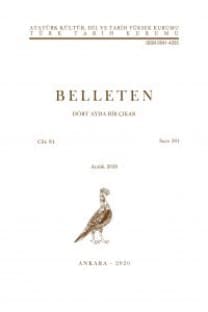IV. Uluslararası Güney-Doğu Avrupa Incelemeleri Kongresi
V. Uluslararası Güney - Doğu Avrupa İncelemeleri Kongresi 13-18 Ağustos 1979 tarihlerinde Ankara'da Cumhurbaşkanımız Sayın Fahri Korutürk'ün koruyucu başkanlığında toplanmıştır. Kongre'ye 326'sı yabancı olmak üzere 380 delege katılmış, 19 rapor, 110 co-rapor, 213 bildiri sunulmuştur. Yuvarlak Masa'ya ise 20 konuşmacı katılmıştır. 13 Ağustos 1979 Pazartesi günü saat 9.30'da Türk Tarih Kurumu Merkezinde toplanan Kongre üyeleri Atatürk'ün Anıtkabrini ziyaret ederek saygı duruşunda bulunmuşlardır. Türk Tarih Kurumu ve Kongre Başkanı Ord. Prof. Enver Ziya Karal Anıtkabir'deki özel deftere şu sözleri yazmıştır: Atatürk: Türkiye'nin üyesi bulunduğu Güney - Doğu Avrupa İncelemeleri Milletlerarası 4. Kongresi üyeleri saygı ile huzurunda eğildik. Bir zamanlar "Türkler bütün dünya uluslarının dostlarıdır" ve "Yurtta Sulh Cihanda Sulh" ilkelerini bütün bir yaşam için ve herkes için bir kılavuz olarak göstermiştin. Bugünkü ziyaret, bu ilkelerin canlılığını ve ölmezliğini kanıtlıyor.
Anahtar Kelimeler:
Türk Tarih Kurumu, IV. Uluslararası Güney-Doğu Avrupa Incelemeleri Kongresi, Fahri Korutürk
Beginnings of Leadership. Mustafa Kemal's First Visit to Libya, 1908
Mustafa Kemal's role during the Turkish - Italian war (1911-12) is well known; He was the commander of the front near Derna, in 'Ain al - Mansur. Enver Bey, who was the commander of the whole of Cyrenaica, stayed at the same camp. In the Presidential Archives in Ankara there are documents written by Mustafa Kemal during the war. In addition, there appeared contemporary journalistic descriptions and photographs of the Derna front. Later on, quite a few people described Mustafa Kemal's role there and his confrontations with Enver Bey. The area and its problems were not new to him. Mustafa Kemal's first visit to Libya was a short one and had more than a military aspect. He was sent there by the Committee of Union and Progress (CUP) at the end of September 1908, to investigate the reasons for political and military insubordination in Libya and was ordered to strengthen the Young Turks' status there. The descriptions of this visit are based to a great extent on Mustafa Kemal's memoires as published posthumously. Contemporary documents shed new light on his mission. Their authors were impressed by the character of this, to them yet unknown, young officer: they were aware of some of his virtues and realized the great future in store of him.
Keywords:
Mustafa Kemal Atatürk, 1908 Visit 1911-12 Turkish-Italian War, Derna, Enver Bey,
- ISSN: 0041-4255
- Yayın Aralığı: Yılda 3 Sayı
- Başlangıç: 1937
- Yayıncı: Türk Tarih Kurumu
Sayıdaki Diğer Makaleler
Silifke ve Dolaylarında Yapılan Topraküstü Arkeolojik Araştırmalar Raporu (1979)
Üyelerimizden Ord. Prof. Dr. Ekrem Akurgal Fransız Akademisine Onur Üyesi Seçildi
IV. Uluslararası Güney-Doğu Avrupa Incelemeleri Kongresi
Beginnings of Leadership. Mustafa Kemal's First Visit to Libya, 1908
